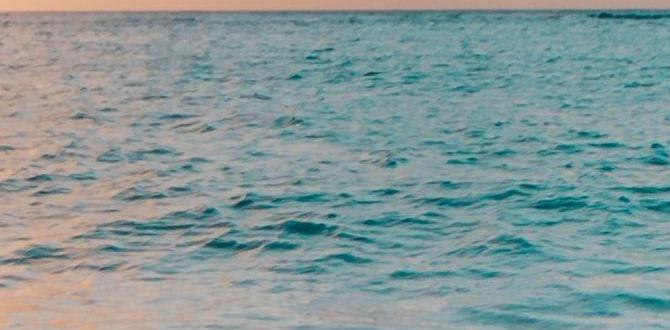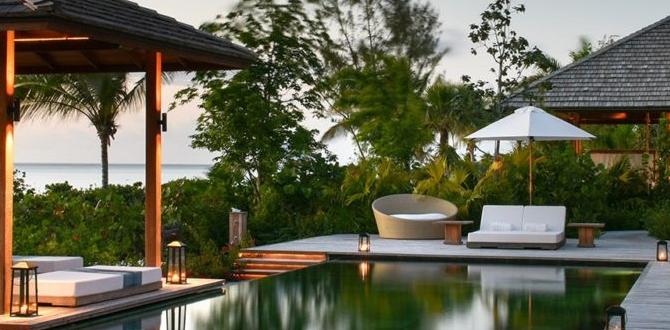Bhutan safety is very high; be aware of common tourist myths and avoid minor logistical errors for a smooth trip. Prepare for cultural nuances, not widespread crime, to ensure a truly enriching experience in the Land of the Thunder Dragon.
Welcome, fellow adventurers! Planning a trip to Bhutan, the mystical Land of the Thunder Dragon, is an exciting step towards experiencing a truly unique culture and breathtaking landscapes. Many travelers wonder about safety in Bhutan, especially concerning scams or common mistakes that could dampen their journey. It’s natural to want to explore new places with confidence and peace of mind, knowing you’re prepared for anything. Good news: Bhutan is renowned for its incredibly low crime rate and its commitment to preserving its rich culture and environment. While you won’t encounter the typical tourist scams found elsewhere, being aware of a few logistical nuances and cultural sensitivities will make your Bhutanese adventure even more seamless and enjoyable. This guide is here to help you navigate your trip with confidence, focusing on practical tips to ensure your Bhutanese experience is as magical as you dreamed. Let’s dive into how to make your Bhutan journey a perfect one, avoiding those little hiccups that can sometimes surprise travelers.
Understanding Bhutan’s Approach to Safety
Bhutan’s safety isn’t just about low crime rates; it’s deeply ingrained in the nation’s philosophy of Gross National Happiness (GNH). This unique development framework prioritizes well-being and harmony over purely economic growth. The government actively promotes responsible tourism, emphasizing cultural preservation and environmental sustainability.
The Impact of Tourism Policies
Bhutan’s tourism policy is unique worldwide. All tourists (except citizens of India, Bangladesh, and Maldives) must book their trip through a registered Bhutanese tour operator and pay a Sustainable Development Fee (SDF). This policy, while seemingly restrictive, is a cornerstone of Bhutan’s safety and overall travel experience.
The SDF, currently set at $100 USD per person per night (for most nationalities), goes directly towards funding Bhutan’s social and environmental programs. This controlled tourism approach ensures that visitors are well-cared for, guided by experienced professionals, and contribute positively to the country’s development. It also significantly minimizes the opportunities for petty crime and scams that can plague destinations with mass tourism.
Due to this regulated system, you won’t find aggressive street vendors, pickpocketing hotspots, or common travel scams like inflated taxi fares or fake tour operators. Your itinerary, accommodation, transportation, and guide are typically all arranged beforehand, providing a structured and secure travel environment.
Common Tourist Misconceptions vs. Bhutanese Reality
When thinking about travel safety, especially in less-traveled destinations, it’s easy to carry over assumptions from other countries. Bhutan, however, operates on a different paradigm.
Are There Scams in Bhutan?
In the traditional sense of tourist scams (e.g., fake guides, rigged taxi meters, “found” wallets that lead to demands for reward, overpriced souvenirs deliberately sold to tourists), Bhutan is remarkably free. The stringent tourism policies and the inherent honesty of the Bhutanese people act as powerful deterrents. You are unlikely to be targeted by professional scammers.
The emphasis here is on avoiding the mistake of assuming common scams will appear, rather than actively guarding against them. The most common “pitfalls” are usually minor misunderstandings or logistical oversights related to the unique travel system, not malicious intent.
What About Petty Crime?
Bhutan consistently ranks as one of the safest countries in the world regarding crime. Violent crime is extremely rare, and petty theft is virtually non-existent, especially in tourist areas. The culture emphasizes respect, honesty, and community. You can feel at ease walking around towns or visiting monasteries, even in the evenings.
Safety for Solo Travelers
Solo travel in Bhutan is very safe. The cultural norms and the guided tour structure provide an added layer of security for individuals. You’ll be accompanied by a guide and driver throughout your journey, ensuring you’re never truly alone or without support. The Bhutanese themselves are warm and respectful, making solo travelers feel welcome and looked after.
Essential Mistakes to Avoid for a Smooth Trip
While scams are rare, there are a few common mistakes beginners can make that might lead to minor inconveniences. These are easily avoided with a little preparation.
Mistake 1: Not Planning Far Enough in Advance
Bhutan mandates that all trips require pre-booking through a local tour operator. This isn’t a place where you can easily decide to go next week. Visas must be processed, flight arrangements made (flights to Paro are limited), and your itinerary finalized. It’s crucial to start planning at least 2-3 months ahead of your desired travel dates, especially if you’re traveling during peak seasons like spring (March-May) or autumn (September-November).
Actionable Tip: Begin researching tour operators well in advance. Read reviews, understand their itineraries, and what’s included in their packages. Contact them with your preferred travel dates and interests.
Mistake 2: Underestimating the SDF and Tour Costs
The upfront cost of a Bhutan trip can seem high due to the SDF and the mandatory package tour. Travelers sometimes miscalculate the total budget, expecting it to be comparable to other Southeast Asian destinations. Remember, the SDF is a daily fee, and the tour package includes accommodation, meals, guide, driver, transportation, and entry fees. It’s a comprehensive cost that covers a high-quality, unique experience.
Actionable Tip: Get detailed quotes from multiple tour operators. Understand what’s included and what’s not (e.g., alcoholic beverages, tips, souvenirs). Ensure your budget accounts for the SDF, visa fees, flights, and any personal expenses.
Mistake 3: Not Informing Your Tour Operator About Special Needs
Whether it’s dietary restrictions, mobility issues, or specific health concerns (like needing adult or child diapers for comfort on long journeys or for medical reasons), it’s vital to communicate these to your tour operator before booking. Bhutanese infrastructure is developing, and while they are accommodating, advance notice allows them to make necessary arrangements. For example, if you need readily available adult diapers or child diapers for peace of mind during extended travel days, your operator can help ensure you have access to suitable options or advise on packing.
Actionable Tip: Be upfront about any personal needs. A good tour operator will work with you to ensure your comfort and safety. For instance, if you require discreet, comfortable adult diapers for long flights or excursions, let them know so they can assist with packing advice or arrangements if feasible, or simply ensure your itinerary allows for necessary stops and comfort.
Mistake 4: Ignoring Cultural Etiquette
While Bhutanese are forgiving, understanding and respecting local customs shows your appreciation for their culture. This is crucial for a positive experience and avoids unintentional offense.
Key Etiquette Points:
- Dress Appropriately: When visiting religious sites (monasteries, temples, dzongs), dress modestly. This means covering shoulders and knees. For men, long pants and collared shirts are advisable. For women, long skirts or pants and modest tops are suitable. Avoid revealing clothing.
- Respect Religious Sites: Remove your shoes before entering temples or homes. Do not point your feet at religious statues or monks. Do not touch religious artifacts or monks without permission. Circumambulate stupas and prayer wheels in a clockwise direction.
- Photography: Always ask permission before taking photos of people, especially monks. Photography is often prohibited inside certain sacred areas within monasteries. Look for signage or ask your guide.
- Gift-Giving: Gifts are appreciated but not expected. If you wish to offer something, small, practical items from your home country are often well-received. Your guide can help with appropriate suggestions. Avoid giving cash directly to monks, as it can be misinterpreted.
- Using Your Left Hand: In Bhutanese culture, the left hand is traditionally considered unclean, so use your right hand when giving or receiving items, especially food.
Mistake 5: Not Being Prepared for Altitude
Paro, Thimphu, and the Paro International Airport are situated at relatively high altitudes (around 2,200 to 2,400 meters or 7,200 to 7,900 feet). While most visitors don’t experience severe altitude sickness, some can feel the effects, especially on the first day or two.
Actionable Tips for Altitude:
- Acclimatize: Take it easy on your first day. Avoid strenuous activities and excessive alcohol.
- Stay Hydrated: Drink plenty of water throughout the day.
- Eat Light: Opt for lighter meals initially, as digestion can be slower at altitude.
- Avoid Alcohol and Smoking: These can exacerbate altitude sickness symptoms.
- Listen to Your Body: If you feel unwell, inform your guide immediately. They are experienced in managing such situations and can advise on rest or medical attention if needed.
Mistake 6: Expecting Constant Connectivity
Bhutan has made significant strides in connectivity, but Wi-Fi can still be spotty, especially in more remote areas or smaller guesthouses. Cell service is generally available in towns but can be weaker in rural regions.
Actionable Tip: Embrace the opportunity to disconnect! However, if staying connected is crucial, inquire with your tour operator about SIM card options for Bhutan or ensure your hotel in major towns has reliable Wi-Fi. Consider downloading offline maps and essential information before you go.
Bhutan’s Safety in Numbers: Statistics and Government Initiatives
Bhutan’s commitment to safety is reflected in its statistics and proactive government policies.
Low Crime Rates
According to global crime indices and statistics from the Royal Bhutan Police, Bhutan consistently boasts one of the lowest crime rates in the world. The homicide rate is exceptionally low, and crimes against tourists are virtually unheard of. This is a testament to the nation’s social fabric and effective governance. For official crime statistics, you can refer to reports from the Royal Bhutan Police.
Health and Emergency Services
Bhutan has a well-established network of hospitals and health centers, particularly in major towns. For emergencies, your assigned guide and driver will know precisely how to access the best available medical care. They are trained to handle minor incidents and assist in cases of serious emergencies, liaising with medical professionals.
Emergency Contact Information:
- Your assigned Bhutanese tour operator’s emergency contact number.
- Royal Bhutan Police: 113
- Emergency Medical Services: 112 (though your guide will be the primary point of contact)
Road Safety
Road conditions in Bhutan can be winding and mountainous. While the government invests heavily in infrastructure, driving can be slow and requires caution. Your Bhutanese driver will be experienced in navigating these roads. Seatbelts are mandatory, and it’s wise to be prepared for potential delays due to roadwork or weather.
Table: Road Safety Considerations
| Consideration | Description | Safety Tip |
|---|---|---|
| Road Conditions | Mountainous terrain, winding roads, occasional rough patches. | Seatbelts are mandatory. Trust your experienced local driver. Avoid driving at night if possible. |
| Speed Limits | Strictly enforced, generally low due to terrain. | Respect speed limits. Your driver will adhere to them. |
| Weather | Can change rapidly; heavy rain or snow can affect road conditions. | Be prepared for travel delays. Your tour operator will adjust the itinerary if safety is compromised. |
| Livestock | Cattle, yaks, and other animals may cross roads unexpectedly. | Be alert and patient when traveling. |
Packing Smart for Safety and Comfort
While you might not need to pack for “scam defense,” smart packing enhances comfort and preparedness, contributing to overall safety and peace of mind.
Essential Items
Comfortable Walking Shoes: You’ll be doing a lot of walking, often on uneven terrain.
Modest Clothing: As mentioned, to respect local customs and enter religious sites. Pack layers as temperatures can vary.
Rain Gear: A lightweight, waterproof jacket is essential, especially during monsoon season (June-August) and shoulder seasons.
Sun Protection: High SPF sunscreen, sunglasses, and a wide-brimmed hat, as the sun can be strong at altitude.
Personal First-Aid Kit: Include basic medications for headaches, upset stomachs, and any personal prescriptions. Consider motion sickness remedies if you’re prone.
Hand Sanitizer and Wet Wipes: Always useful, especially when exploring more remote areas.
Travel Adapter and Power Bank: To keep your devices charged – though connectivity might be limited.
Comfort Items for Long Travel Days: If you require items like adult diapers or child diapers for extended periods or flights, pack a sufficient supply. Choose products that offer discreet comfort and reliable absorbency, like those from brands known for quality incontinence products, ensuring you feel secure and undisturbed throughout your journey. Consider travel-sized packs or discreet carrying bags.
Documents and Money
Passport and Visa: Ensure they are valid.
Travel Insurance: Highly recommended for any international trip. Ensure it covers medical emergencies.
Copies of Important Documents: Keep digital and physical copies separate from the originals.
Payment Methods: While Bhutan uses its own currency (Ngultrum, pegged to the Indian Rupee), major hotels and some shops accept credit cards. However, carry sufficient Indian Rupees (INR) or Bhutanese Ngultrum (BTN) for smaller purchases, tips, and in more remote areas. ATMs are available but can be unreliable outside major towns.
Your Bhutan Journey: Safe, Enriching, and Unforgettable
Bhutan offers a travel experience that is as safe as it is profound. By understanding its unique tourism model and embracing its cultural nuances, you are already well on your way to a mistake-free adventure. The absence of common tourist scams is a testament to Bhutan’s integrity, allowing you to focus on its beauty and spirituality.
Remember, preparation is key. Planning ahead, budgeting realistically, communicating your needs, and respecting local customs will ensure your journey is smooth and enjoyable. Whether you’re exploring ancient monasteries, hiking through pristine landscapes, or engaging with the warm-hearted locals, your Bhutanese adventure promises to be a highlight. Embrace the tranquility, the culture, and the incredible safety that Bhutan offers. Your journey to the Land of the Thunder Dragon is set to be a truly enriching and profoundly safe experience.
Frequently Asked Questions (FAQs)
Q1: Is it safe to drink tap water in Bhutan?
A1: While tap water in Bhutan is generally considered safe to drink in major towns and hotels, it’s always best practice to err on the side of caution when traveling. Most tourists opt to drink bottled water (available widely) or water that has been filtered or boiled to avoid any potential stomach upset.
Q2: What is Tipping etiquette in Bhutan?
A2: Tipping is not mandatory in Bhutan but is appreciated for excellent service. Your tour package usually includes tips for your driver and guide, but it’s common to add a personal tip based on your satisfaction. Your tour operator will provide clear guidance on recommended amounts and when to tip (e.g., at the end of your tour).
Q3: Can I travel to Bhutan independently without a guide?
A3: For most international tourists, independent travel is not permitted. You must book your trip through a registered Bhutanese tour operator and travel with a guide throughout your stay (except for citizens of India, Bangladesh, and Maldives). This policy ensures a controlled and enriching tourist experience.
Q4: Are there any specific health vaccines recommended for Bhutan?
A4: Routine vaccines are generally recommended. It’s always wise to consult with your doctor or a travel clinic several weeks before your trip for personalized advice on recommended vaccinations and any necessary precautions for Bhutan. There are no specific mandatory vaccines for entry.
Q5: What should I do if I encounter a medical emergency in Bhutan?
A5: In case of a medical emergency, your immediate point of contact should be your Bhutanese tour guide and driver. They are trained to know how to access the nearest and best medical facilities and will liaise with healthcare professionals. For urgent situations, emergency services can be called (112), but your guide’s direct knowledge is invaluable.
Q6: Is it okay to take photos of people in Bhutan?
A6: When photographing people, especially locals and monks, it is always polite and respectful to ask for their permission first. Many will be happy to be photographed, but some may prefer not to be. Always be mindful of signs prohibiting photography in certain religious or cultural sites.
Q7: What kind of adapter do I need for electronics in Bhutan?
A7: Bhutan uses Type D and Type C electrical plugs, with a voltage of 230V and a frequency of 50Hz. It’s advisable to bring a universal travel adapter that can accommodate these plug types. Many modern electronic devices (laptops, phone chargers) are dual voltage, but it’s always good to check the label.



